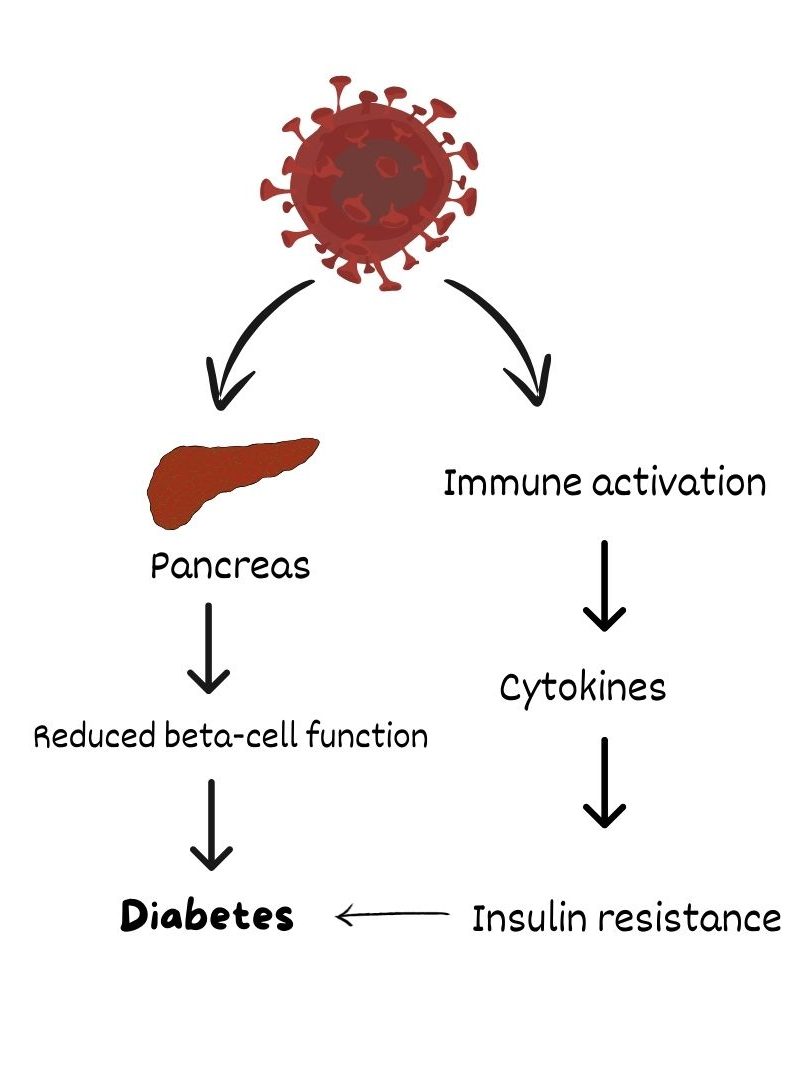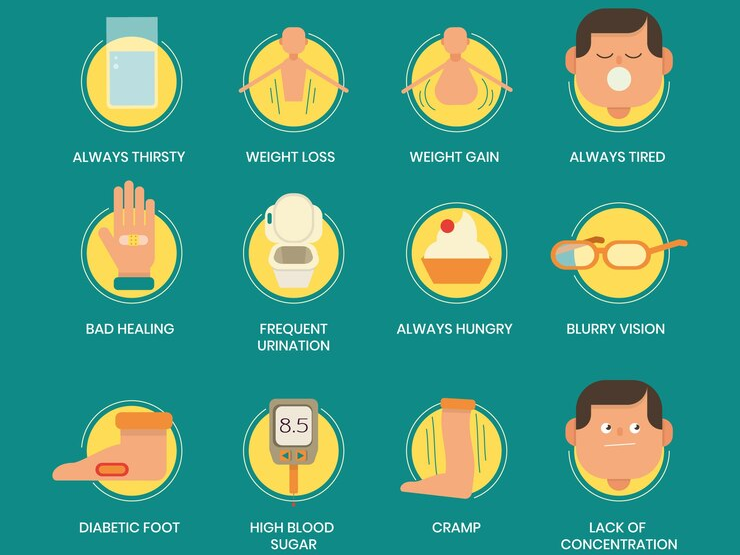
- 1166
- 1
Risks of Diabetes After Viral Infections
In today’s interconnected world, where news travels faster than ever, we often find ourselves bombarded with headlines about health crises, from viral outbreaks to the latest scientific discoveries. One such topic that has been gaining attention is the potential link between viral infections and the onset of diabetes. With over 420 million people worldwide diagnosed with diabetes mellitus (DM), this connection raises significant questions about our health and well-being.
Imagine this scenario: You’ve just recovered from a viral illness amidst a global pandemic. You’re relieved to be on the mend, but then you hear about a startling revelation – surviving certain viral infections could increase your risk of developing diabetes by 40% in the next year. It’s a sobering thought, but how much truth is there to this claim, and what does it mean for our understanding of both viral infections and diabetes?

Firstly, let’s address the question at hand:
Is there a connection between viral infections and diabetes?

The answer, as it turns out, is not a simple yes or no. While extensive research has been conducted in the state of advancement of autoimmunity and infection history of affected individuals, the relationship between viral infections and diabetes remains complex and multifaceted.
Different types of diabetes
Diabetes mellitus, or simply diabetes, is a chronic metabolic disorder described by high blood sugar levels over time. Millions of people worldwide are impacted by this serious common complication. There are two varieties of diabetes: Type 1 and Type 2.
Type 1 Diabetes:
The first type of diabetes is an autoimmune disorder where the body’s immune system damages insulin-producing beta cells in the pancreas, consequently leading to a shortage of insulin production and high blood sugar levels.
Factors such as Genes and environments are believed to have a significant role in the development of Type 1 diabetes. For example gene for glucokinase (GCK) on chromosome 7, encodes an enzyme which is essential for glucose metabolism and influence insulin secretion.
Type 2 Diabetes:
However, insulin resistance—a condition in which the body’s cells fail to respond to insulin as intended—is frequently linked to Type 2 diabetes. Sugar builds up in the blood as a result of this.
Type 2 diabetes is a result of a combination of lifestyle variables, including heredity, obesity, poor food, and inactivity.
Now, here’s where it gets interesting. While genetics and lifestyle play significant roles in diabetes development, viral infections have also been implicated as potential triggers. Viruses like enteroviruses, cytomegalovirus, and corona virus have been linked to both Type 1 and Type 2 diabetes. Enteroviruses, Coxsackievirus, mumps virus, and cytomegalovirus are among the viruses that have been connected to development of in Type 1 diabetes by attacking pancreatic beta cells. Type 1 and Type 2 diabetes has also been linked to congenital rubella and hepatitis C virus respectively.
But how does a virus cause diabetes?

Well, viruses are sneaky creatures. They hijack our cells’ machinery to replicate, often leading to changes in cellular metabolism. This metabolic shift can trigger insulin resistance or directly damage insulin-producing cells in the pancreas. Additionally, viral infections can cause inflammation, further contributing to diabetes development.
However, it’s crucial to understand that not everyone who gets a viral infection will develop diabetes. The interplay between genetics, viral infection, and environmental factors determines an individual’s susceptibility to the disease.
So, who is more likely to develop diabetes after viral infections?
Genetic Predisposition: A person’s vulnerability to viral infections and diabetes is largely determined by their genetic makeup. Some individuals may have genetic markers that make them more vulnerable to both conditions.
Age: Children and young adults are more commonly affected by viral infections that have been linked to the onset of type 1 diabetes, such as enteroviruses. Conversely, older individuals may be more susceptible to developing type 2 diabetes following viral infections due to age-related changes in immune function and metabolism.
Pre-existing Health Conditions: People who already have health issues, such obesity or metabolic syndrome, may be more likely to develop diabetes after contracting a virus.
Viral Strain and Virulence: Not all viral infections are created equal. Its depends on three factors such as –
- The specific strain of the virus and its virulence.
- the severity of the disease it causes.
- can influence the likelihood of diabetes development.
Environmental Factors: Environmental factors, including diet, lifestyle, and socioeconomic status, also play a crucial role. Poor dietary habits, sedentary lifestyles, and limited access to healthcare can exacerbate the impact of viral infections and contribute to the development of diabetes, particularly in vulnerable populations.
For a healthy life, it’s essential to maintain a balanced diet. If you’d like a customized diet plan, don’t hesitate to reach out to our team of dietitians🍽️🍴
What are the warning symptoms of developing diabetes if you have a viral infection?

- Urinating more frequently during the day or waking up in the middle of the night to do so.
- Increased thirst combined with hazy eyesight.
- Not being able to put on the weight you lost while seriously ill.
- Slow repair of wounds.
- Exhaustion. One reason this is difficult is that most COVID patients experience lethargy for a long time following the initial sickness.
In conclusion, while the idea of viral infections inducing diabetes may seem daunting, it’s just one piece of the puzzle. As we navigate the complexities of infectious diseases and chronic conditions like diabetes, it’s essential to approach the topic with an open mind and a commitment to scientific inquiry. By shedding light on these potential connections, we move closer to a healthier future for all.
To know more about Uncontrolled Diabetes & Vision Loss, click below👇

Comment
Check Your EGFR
***We Promise, no spam!







2024-03-20 11:41:35
Samar Nath Sadhukhan
Undoubtedly, it is an useful lession. It is very helpful for those who are suffering from diabetic.
Glad to hear from you, Keep an eye out for further updates on health-related matters.